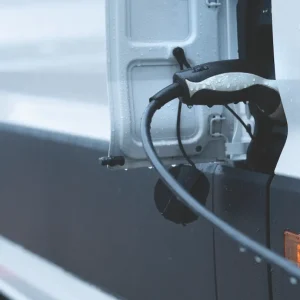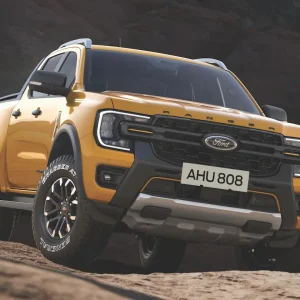The variety of van sales options is bigger than ever, with the quickest of internet searches revealing that the number of vehicle-buying websites has mushroomed in recent years.
The operation with the most clout, and probably the highest profile, is Webuyanyvan.com, commercial vehicle offshoot of the Webuyanycar.com sales juggernaut – both of which are owned by British Car Auctions – but there are plenty of smaller players touting for similar trade.
The USP of these websites is that they provide speedy transactions and predetermined values, shutting out the potential hassle of dealing with private buyers and bypassing the costs associated with advertising or putting vehicles through disposal channels such as auctions. Well, that’s the sales pitch.
“They’ve made auctions question how friendly and informative they are to Joe Public,” says Alex Wright, managing director of Shoreham Vehicle Auctions and chair of the National Association
of Motor Auctions’ Commercial Vehicle Group. Wearing his Shoreham Vehicle Auctions’ hat, Wright reckons that his industry is generally very slick with the logistics of mass vehicle sales,
but its business-to-business focus perhaps has made it intimidating to some potential vendors. He claims some stock taken by web-based purchasers is then re-sold at auction, something that might surprise owner/operators who’ve sold vehicles to internet buying firms.
However, for many web-based van-buying operations, their biggest motivation is increased access to still-scarce stock, with the vehicles bought marketed through conventional sales sites, which are the financial backbones of net services.
Ryan Clark, owner of the operation that runs Sell My Van (www.sellmy-van.co.uk), is a good example.
“We’re just an independent, small company and we’ve been in this industry for about four years,” he says of his company’s web activities. “The ethos behind it (the website) was that people always need vans, even in a recession, and when times are hard they’ll probably want cheaper vans.”
Clark says the internet gave his business a degree of parity with some of the vehicle sales giants when sourcing stock, but that the market had become tougher as more internet sites with similar offerings had appeared.
There have been suggestions that the economic upturn will puncture the market for them,
as the sales of new vans rise, particularly among small businesses, causing a softening of older used residuals and a dip in demand.
David Turnbull, who has sold cars and vans since the late 1980s, is behind the website Needto-sellmyvan.co.uk, and is about to pull the plug on it, concentrating instead on a car sales operation.
“The problem with commercials is tying up too much money,” he says. “Older vans
get damaged, and you can spend a load of money on paintwork. Newer stuff doesn’t need as much prep, but it’s harder to sell.”
There are also operating costs involved with getting a business’s name high on search engine rankings, and Turnbull has decided it’s a price he’s no longer interested in paying to sell used LCVs.
Jason Howell of the Bristol- based Advantage 4 Vans LCV sales operation, also runs Cash4vans.com. He says that it generated “quite a lot of leads” and brought in vehicles from further afield, including a van that was driven from London.
“If the vehicle is as described, people know what they’re going to get for it,” he says, adding that unless there’s a problem, he doesn’t attempt to reduce the initial valuation, something which can happen in this sector, leaving vendors with the dilemma of accepting less money, or taking the vehicle home and try selling it elsewhere.
The long-distance nature of the Bristol sale wouldn’t surprise Alex Wright, who says that access to web-based valuation information, and constantly updated web valuation services, means that regional spikes and variations in RVs are history, so people will travel to buy or sell as the returns are known.
According to NAMA, in May, year-on-year demand for used LCVs was up 14%, which means that the internet buyers are chasing, and putting pressure on, a finite market, while vehicle vendors of all types who spoke to WhatVan? confirmed that buying in-demand stock of any age is currently difficult.
Alex Wright echoes the view of many when he says it was unclear whether internet vehicle buyers would have a significant impact on van sales long term, although he suggests that the way technology developed might ultimately decide this.
John Davies, chairman of the Vehicle Remarketing Association, thinks the die has already been cast.
“Having emerged during the recessionary years when good- quality stock from traditional sources was in short supply, these business models are proving very popular and look like they are here to stay. In fact, similar concepts covering cars and commercials have been launched in a number of EU countries and even as far away as Australia,” he says.
Many UK-based internet van buyers predict a familiar market- maturing process involving consolidation, with bigger players taking more control over time.





